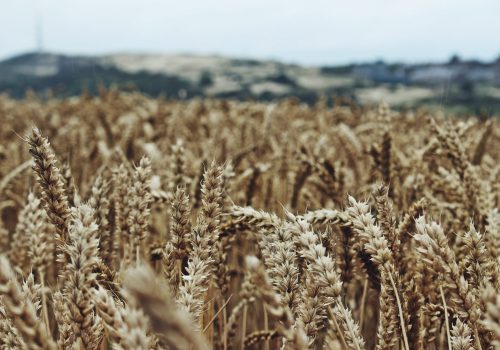Editorial
On March 11, 2020, the World Health Organization (WHO) declared COVID-19 a pandemic, but the virus’ impact quickly spread beyond public health. Indeed, just one month later, supply chain disruptions and job loss escalated the pandemic into a global economic crisis. Economic hardship, in turn, spawned social unrest, sparking waves of protests around the world. Taken together, the COVID-19 pandemic has revealed that the world is increasingly governed by complex systems, defined by Dr. Melanie Mitchell as “a system in which large networks of components with no central control and simple rules of operation give rise to complex collective behavior, sophisticated information processing, and adaptation via learning or evolution.” Such networks are prone to failure – when one node breaks down, because of the complexity of the entire system, others fall too. As the authors of a recent National Institute of Health paper put it, “the random events in a market in Wuhan, China have released a set of cascading consequences that have diffused across global networks.”
The global food system demonstrates how cascading failures in complex systems result in economic hardships that are exponential in scale. As the GeoTech Center predicted in March 2020, the pandemic has exacerbated global food insecurity. In the pandemic’s early stages, food-exporting countries—including Russia, the world’s largest wheat exporter—moved to restrict or suspend their crop exports. Anticipating a worldwide food shortage as a result of such restrictions, net importers like Jordan began stockpiling food supplies, creating a feedback loop that further drove up prices and threatened to push low-income populations into food insecurity. Now, the UN World Food Program estimated that 270 million individuals are on the brink of starvation, double the pre-COVID figures. Cascading failures of this scale will only be more common in the future. Prior to the pandemic, GeoTech Center Nonresident Senior Fellow Dr. Marcus Ranney and Action Council Member Mr. Sahil Shah wrote that “climate change presents unprecedented challenges to agriculture,” noting how “the increasing incidence and severity of natural hazards, soil degradation, a decline in arable land, climate-related migration and conflict, all contribute to the challenges we are facing to food security.”
Of course, while the threat of cascading failures may be increasing, it is not new. As GeoTech Commissioner Dr. Shirley Ann Jackson explained in a recent interview with the American Institute of Physics, the 2011 Fukushima nuclear disaster is an example of a complex-systems failure with cascading consequences. Russia’s 2017 NotPetya cyberattack is as well. Indeed, all of today’s complex systems are vulnerable to failure, for they were designed for efficiency over resilience. But as the risk of cascading failures increase, it is imperative that decision-makers create strong, yet flexible, global networks that governments, business, and citizens can rely on.
A successful strategy would leverage new technological developments and data analytics, building a more efficient and resilient decision-making process that better connects farmers and consumers. Moreover, COVID-19 lockdowns have accelerated the trend toward the use of online platforms for food purchases, and have proven the critical role of digital infrastructure in making food accessible and reducing the risk of food perishing. The Asian Development Bank however warns that “giving farmers access to e-commerce requires support to standardize production, organize the farmers, and build logistics capacity in remote areas.” Incentivizing the digitalization of the supply chain would also benefit consumers, who have become more educated and are increasingly demanding to know if the foods they consume are environmentally and socially sustainable or not. Experts highlight that, as a result, “food product traceability, safety, and sustainability issues have become crucial concerns to food retailers, distributors, processors, and farmers. Digitalization,” they argue, would allow “food supply chains to be highly connected, efficient, and responsive to customer needs and regulation requirements.”
Ultimately, an economy of trust is an economy of efficiency, resilience, transparency, and accountability.
Sincerely,
Pascal Marmier
The Economy of Trust Foundation / SICPA
Dr. David Bray
Atlantic Council GeoTech Center
Borja Prado & Benjamin Schatz
Editors
Get the Economy of Trust newsletter
Sign up to learn about advances in technology and data activities that, through trust and more transparent frameworks, improve nations and sectors alike.
Research & Analysis
Image: Scores of people line up for a meal served by volunteers from the Franciscan initiative called Sefras in the midst of the Corona pandemic.



